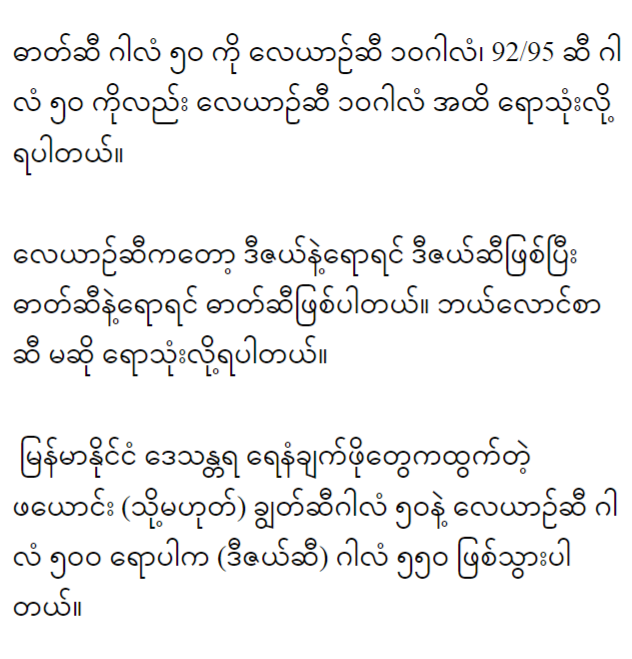



The significance of safeguarding digital assets has never been greater as cryptocurrency grows in popularity as an investment and payment option. Cryptocurrencies are a prime target for cybercriminals because, unlike conventional currencies, they are entirely digital. It doesn’t matter if you’re a seasoned crypto investor or a novice—knowing the best ways to safeguard your digital assets is essential to protecting your investments. This blog post will go over some important ways to make your cryptocurrency security better and keep your holdings safe.
Figuring out Cryptographic money Security
Cryptographic money security alludes to the actions and practices that clients should embrace to safeguard their computerized resources from robbery, extortion, and unapproved access. Security for cryptocurrencies is entirely up to the user because they are decentralized and not supported by any government or financial institution. Dissimilar to conventional ledgers, where taken assets might be recuperated with the assistance of policing banking establishments, cryptographic money exchanges are irreversible. When your resources are gone, they’re long gone.
It is essential to take proactive measures to safeguard your digital assets in light of these stakes. The following are a few prescribed procedures to assist you with safeguarding your digital currency.
1. Utilize a Secure Wallet A cryptocurrency wallet is a software or hardware device that enables digital asset storage, transfer, and use. There are many different kinds of wallets, each with varying levels of security:
Hot Wallets: These are internet-connected wallets, such as web-based wallets or mobile apps. While they offer comfort, they are likewise more helpless against hacking. Small amounts of cryptocurrency that are required for daily transactions can be stored in hot wallets.
Cold Money: These are disconnected wallets, for example, equipment wallets or paper wallets, that are not associated with the web. For storing large amounts of cryptocurrency, cold wallets are recommended because they provide the highest level of security. Since they are disconnected, they are invulnerable to internet hacking endeavors.
Equipment Wallets: Hardware wallets are physical devices that store your private keys offline. They are a type of cold wallet. They are viewed as one of the most secure choices for putting away cryptographic money since they require actual admittance to the gadget to start exchanges.
Use a combination of hot and cold wallets for maximum security. The majority of your assets should be stored in a cold wallet for long-term storage; smaller, more routine transactions should be made in a hot wallet.
2. Enable Two-Factor Authentication (2FA) By requiring two forms of verification prior to granting access, Two-Factor Authentication (2FA) adds an additional layer of security to your cryptocurrency accounts. Normally, this includes something you know (like a secret key) and something you have (like a cell phone). A hacker still needs the second factor, such as a code sent to your phone, to access your account even if they manage to get your password.
Rather than relying on SMS-based 2FA, it is essential to use an authentication app like Google Authenticator or Authy when setting up 2FA. SMS 2FA can be helpless against SIM trading assaults, where programmers capture your telephone number to block validation codes. Confirmation applications give a safer and solid technique for two-factor validation.
3. Secure Your Private Keys The cryptographic keys that give you access to your cryptocurrency holdings are known as your private keys. They can control your assets if they gain access to your private keys. As a result, protecting your private keys and never giving them away are essential.
Avoid online storage of private keys: Try not to store your confidential keys in distributed storage administrations, email accounts, or some other web-based stage. These can powerless against hack. All things considered, store your confidential keys disconnected, for example, in an equipment wallet or on a piece of paper kept in a safe area.
Make a copy of your private keys: Keeping a backup of your private keys is absolutely necessary in the event that your primary method of storage fails, such as when your hardware wallet is lost or damaged. Store the reinforcement in a different, secure area, for example, a protected or a bank store box.
Utilize a Seed Expression: When you create a new wallet, many wallets generate a seed phrase, which is a 12-to-24-word sequence. This seed expression can be utilized to recuperate your wallet on the off chance that you lose admittance to it. Keep your seed phrase safe by writing it down on paper. Never store it digitally because it could be hacked.
4. Avoid Phishing Scams Cybercriminals frequently employ phishing scams to steal cryptocurrency. Emails, messages, or websites that appear to be from legitimate businesses or individuals are frequently used in these scams. The objective is to deceive you into providing sensitive information such as private keys, passwords, or other information.
To avoid falling for phishing scams:
Check URLs: Continuously twofold check the URL of any site prior to entering your login certifications. URLs used by phishing websites frequently resemble those used by legitimate websites, with only minor differences that are easy to overlook.
Have some glaring misgivings of Spontaneous Messages: Be extremely cautious if you receive an unsolicited email, message, or social media request requesting your login information or private keys. This information will never be requested by legitimate businesses via email or messaging platforms.
Use Bookmarking: To abstain from coincidentally visiting phishing destinations, bookmark the authority sites of your digital money trades, wallets, and different administrations, and consistently access them through these bookmarks.
5. Maintain Updating Software It is essential to maintain updating software regardless of whether you use a cryptocurrency exchange, cold wallet, or hot wallet. Programming refreshes frequently incorporate security fixes that safeguard against newfound weaknesses. Neglecting to refresh your product could allow your resources for stay uncovered to likely dangers.
Update Your Wallets: Make certain that the cryptocurrency wallets you use are always using the most recent version. Desktop and mobile applications are included in this.
Make a change to your operating system: It is also essential to keep your operating system (OS) up to date because OS updates frequently include significant security updates. This applies to both your PC and cell phones.
Update Antivirus Programming: Check to see that your antivirus software is actively looking for malware and that it is up to date. Malware that might target your cryptocurrency wallets can be detected and prevented with the assistance of a good antivirus program.
6. Utilize Trustworthy Trades
While purchasing, selling, or exchanging digital money, it’s critical to utilize respectable trades areas of strength for with measures set up. Some exchanges may have weaker security protocols than others, making them more susceptible to hacking.
Research the Trade: Prior to utilizing a trade, research its security history, client surveys, and the actions it has set up to safeguard client reserves. Look for exchanges that provide protection against hacking, cold storage for user funds, and two-factor authentication (2FA).
Transfer Money to Your Wallet: Leaving a lot of digital currency on a trade for expanded periods is by and large not prudent. When your exchange is finished, pull out your assets to your own safe wallet. Trades can be hacked, and on the off chance that your assets are put away on the trade, they could be in danger.
7. Instruct Yourself and Remain Informed
The universe of cryptographic money is continually advancing, with new dangers and security best works on arising consistently. One of the best ways to safeguard your digital assets is to educate yourself and remain informed.
Follow Security News: Keep up with the most recent developments and news regarding cryptocurrency security. This will assist you with remaining mindful of expected dangers and how to relieve them.
Take Advice from Respected Sources: There are numerous communities, forums, and online resources devoted to cryptocurrency security. Always rely on trustworthy sources for information and guidance.
Cyber hygiene should be practiced: It is essential to practice general good cyber hygiene in addition to the aforementioned practices. This incorporates serious areas of strength for utilizing, passwords for every one of your records, being careful about the data you share on the web, and routinely assessing your security settings.
Conclusion When it comes to managing your digital assets, cryptocurrency security is an essential component. By following these prescribed procedures — utilizing secure wallets, empowering 2FA, protecting your confidential keys, keeping away from phishing tricks, keeping programming refreshed, utilizing legitimate trades, and remaining informed — you can fundamentally decrease the gamble of burglary or misfortune. Keep in mind, the security of your digital currency is eventually in your grasp, and avoiding potential risk today can assist with safeguarding your speculations for what’s to come.